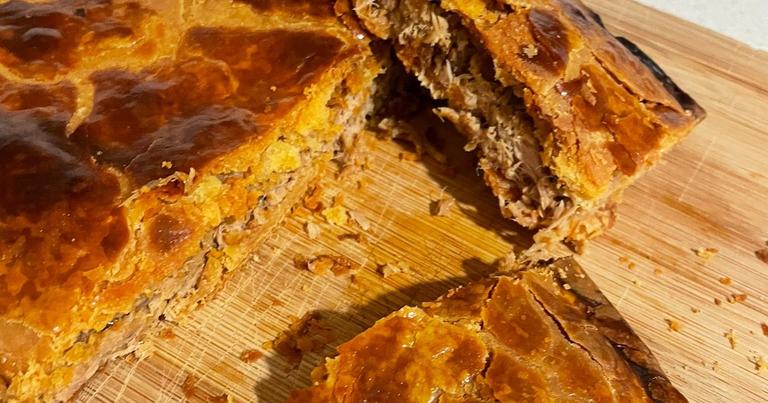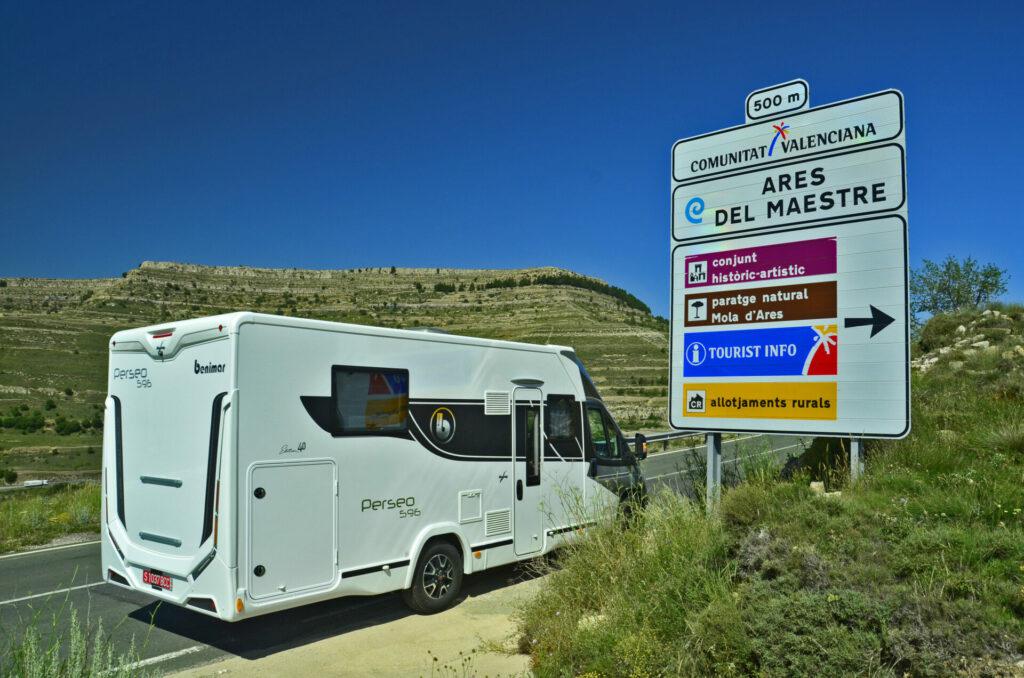The empanada at home that excites cooks and critics
If there is a preparation that is worshiped in Galicia, that is the empanada. A good dough based on wheat, corn or chestnut flour with infinite possibilities of rich filling, can anyone resist that? I doubt it. Unfortunately, far from wealthy lands or specialized restaurants, it is easier to find under that name horrors perpetrated based on industrial puff pastry or coarse dough, regular tuna, almost non-existent fillings and half-baked stir-fries.
But for a couple of months there has been an empanada that has been on the lips of chefs, gastronomic critics and fans of Galician cuisine in general, which you can receive at home and eat, freshly made, after baking it for an hour (and resting for 20 minutes). With all of you, Pablo Pizarro's traveling empanada, a Galician chef of Argentine origin whom we have already had around here making magic with a can of mussels and making us fall in love with his squid sandwich.
The origin of this business diversification is —surprise— in the crisis generated by the covid-19 pandemic. When they joined the Leviandier restaurant team last November, they did so with all the restrictions and the premises closed to the public, preparing only takeaway food, and they were not able to open the room until December. “For Christmas, many people ordered food from us for home, and especially empanadas. We put them on a skewer and others, and people liked them a lot. It's something I've been doing for quite some time, I already had it as an appetizer when I worked at Bocanegra and they always turned out well, ”says Pizarro from his kitchen.
When the restaurants closed again in January, they realized that they were not very comfortable with the take away theme, due to the type of cuisine they offered: vegetable dishes, tasty rice dishes, substantial stews and other elaborate dishes that they now serve in its menu of the day and a la carte at night on weekends. “We began to think about the issue of ensuring that the empanada arrived safely at the customers' homes. We wanted to do tests, we started by sending chefs from here, friends and acquaintances, to see how they traveled”. When they saw that it was doing it properly, they expanded the delivery area, the phenomenon took off on its own and demand grew.
At the moment they have tuna empanadas on the menu (27 euros), xoubas —sardines— (30 euros), zorza (pork mincemeat) and Padrón peppers (32 euros), Galo Celta stew (34 euros ) and boletus and Savel cheese for 36 euros, all weighing 1.8 kilos; that you can order in Leviandier, always 48 hours in advance. "We are going to play with the ingredients: when the xouba season is over we will have to look for life with another, now that the tuna season begins, we will surely make some with fresh tuna... we will play with the product". Right now he has in mind to make a vegetable, in collaboration with Santiago Pérez from La Finca de los Cuervos, a Galician vegetable garden that supplies haute cuisine restaurants.

Pizarro's is a "restaurant" empanada: its dough is not bread, but based on oil, milk, flour, salt and paprika, it is not fermented but finer, more delicate. A crunchy and very tasty dough, which you could eat alone as if it were a cracker without any problem. Inside, top quality ingredients well worked and a delicious sauce. The xoubas filling is Pablo's favourite: a classic Galician empanada, in this case enhanced with a skilled cook's technique; the sardines were boned and filleted, achieving a very fine finish and —again— “restaurant”. The sofrito that accompanies them is tasty and concentrated, just like the flavor of the Padrón peppers that accompany the zorza —well seasoned and not greasy, very fine to the bite— of the other empanada that I was lucky enough to try.
“I think it is the filler that represents us the most. He was also very happy with the scallops, but when trying to use a good product —and this product being seafood— the price skyrocketed”. They also worked with octopus, “which was in great demand, but we were not convinced and we withdrew it. Right now the rooster seems very interesting to me, the zorza and padrón pepper is very typical Galician”. There are also people who make proposals or ask for changes and they make them: they have no problem with this, since they make the empanadas in a completely traditional way.
Another thing that gives it added value is that you bake it at home, so you will always eat it freshly made. "Many people recommended us to sell it baked -especially in order to grow the business, so that it would be more comfortable at home- but at the moment it is something that I do not consider." Pizarro doesn't want to grow at any price: he believes he has a quality product, and if he has to lower it to grow more, he doesn't even think about it.
For example, for the fillings and stir-fries they exclusively use flat onions from the country —which he paid last week for four euros per kilo, when you can buy a bagged onion in bulk for 0.80—. “In addition, he has more work to peel it, because it is harder and tighter, and sometimes it also has a layer of skin inside and you have to peel it off, and we also cut them with a knife. But I think that, in addition to having less water content, giving a more mellow result, they have another flavor apart from sweet, and when you don't get the same amount of water from the beans as from the onion."
They also buy the peppers raw —and locally— and roast them themselves in the oven. They buy the xoubas from their fishmongers at the food market and clean them by hand; They buy the Gaul Celta —an endemic species raised in freedom— from David Sueiro and the fox is from his butcher in the Plaza de Lugo. "We buy from our usual suppliers - which we believe are the good ones - although sometimes it is not easy," says Pizarro. For example, at the beginning of production they caught a three-day storm during which they had no sardines (and they did not go to buy them elsewhere). “Well, there is the secret: if you work with a good product and don't spoil it, in the end you will have a good result. I've worked in a hotel kitchen for a long time and I also know what it's like to work with common ingredients, and there's no color."
The team is made up of the same people who cook at Leviander: Cristian Arias, Anaisa Rodriguez and Pablo himself. "Between these three people we provide breakfast, the menu of the day, Friday and Saturday dinners and the production of empanadas, all in a 16-square-meter kitchen." They have in mind to find a workshop to be able to make the empanadas, but for now they manage: "Doing a lot of tetris and playing the puzzle we manage to make empanadas every day, so that they come out"
The reception of the public has been very good: at first they were sent to chefs, journalists and other people in the gastronomic sector to try them, and the feeling was very good. "The truth is that this has made things easier for us and we have been able to reach a large audience, but what makes me happiest is that many people who ask, repeat". They have clients who already have their third or fourth order, people who order every 15 days and chefs, such as Francis Paniego, Javi Estévez or Marcos Morán, who after sending them one have bought others to eat with their family. "There are also customers from Coruña who ask us to bake them for them and pick them up at the store," says Pizarro, but I would recommend not giving up the aroma left by the empanadas at home when cooked (and the pleasure of eating it while still warm). .
The production at the moment —the project is very young— is around 30 empanadas a week, between shipments and collection. "There are stronger weeks when there are holidays or Mother's Day or other things to celebrate, and also other weaker ones, of course." The future lies in being able to finally find that workshop, hire staff and start supplying suppliers instead of directly to the final consumer, and there are important gourmet product distributors who are interested. “I want to sell to stores, restaurants and through the HORECA distribution channel —for hotels, restaurants and cafes—, but what you will get will always be the same empanada we make now. Grow, but always with your head! And without ever sacrificing product quality or traditional techniques.”
In the Product of the Month section, we tell the story of foodstuffs that move us because of their quality, their flavor and the talent of the people who make them. No producer has given us money, jewelry or Mercadona gift vouchers for the preparation of this article.







